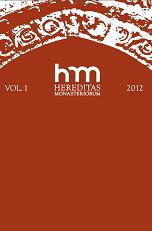Dziedzictwo klasztorów w perspektywie twórczości Michela Foucaulta
The monastic legacy in the view of Michel Foucault’s work
Author(s): Marcin JewdokimowSubject(s): Cultural Essay, Political Essay, Societal Essay
Published by: Laboratoire de Recherches sur l'Histoire des Congregations et Ordres Religieux (LARHCOR)
Keywords: heritage; monastery; Michel Foucault; historiography; discipline; punish; Parousia; monastic life; body; space; archeological analysis; genealogical analysis; claustralization
Summary/Abstract: The purpose of this article is to present the problem of the monastic heritage in the view of Michel Foucault’s output. The monastic issue is most fully discussed by the afore mentioned author in his work Discipline and Punish: The Birth of the Prison, originally published in 1975 in France, and in Poland in 1993. In the Foucault’s point of view, the main legacy of the monasteries is the fact that they constitute the source, although far and transformed, of the disciplinary order, which has emerged at the turn of the 17th and 18th centuries, and according to Gilles Deleuze – remained roughly until the end of 20th century, when it was replaced by the life ordering logic of social control. In the first part of hereby article I will discuss selected threads of disciplinary society, which the author of Discipline and Punish considers as related to the organization of monastic life. Therefore, I will discuss the problem of the body and self, time and space, and power. In the second part of the article I will focus on the methodology of Michel Foucault – the archeological and genealogical analysis, which enables him to point out, as I believe, in a surprising and not so obvious manner, the link between the medieval convent life and the social organization in the period between the turn of 17th and 18th and the end of 20th century. Contrary to the widespread views of the monastic legacy problem in which it is considered for instance as the source of high culture or charitable activities, the heritage itself for Foucault are the social practices, of which aim was, figuratively speaking, replaced about the half of 17th century – from the preparation for the Parousia to the emphasis on economic efficiency and the emergence of new form of domination over the individual. Isolation, the control over the body and detailed schedule of the day distinguishing the monastic life so far, are becoming the techniques of power in the forming disciplinary society, generating new, unknown earlier, forms of domination.
Journal: Hereditas Monasteriorum
- Issue Year: 2012
- Issue No: 1
- Page Range: 17-29
- Page Count: 13
- Language: Polish

